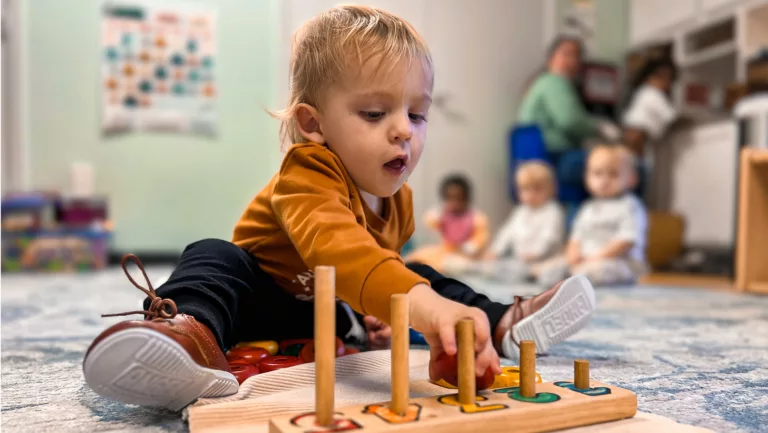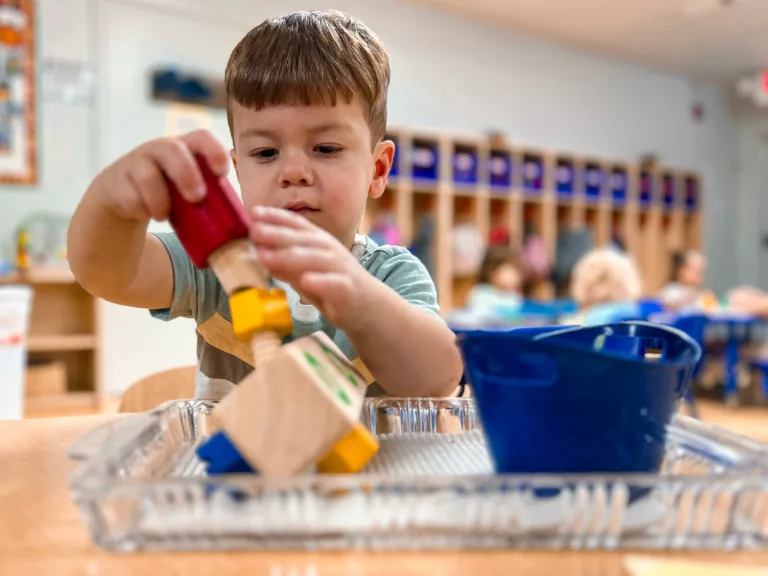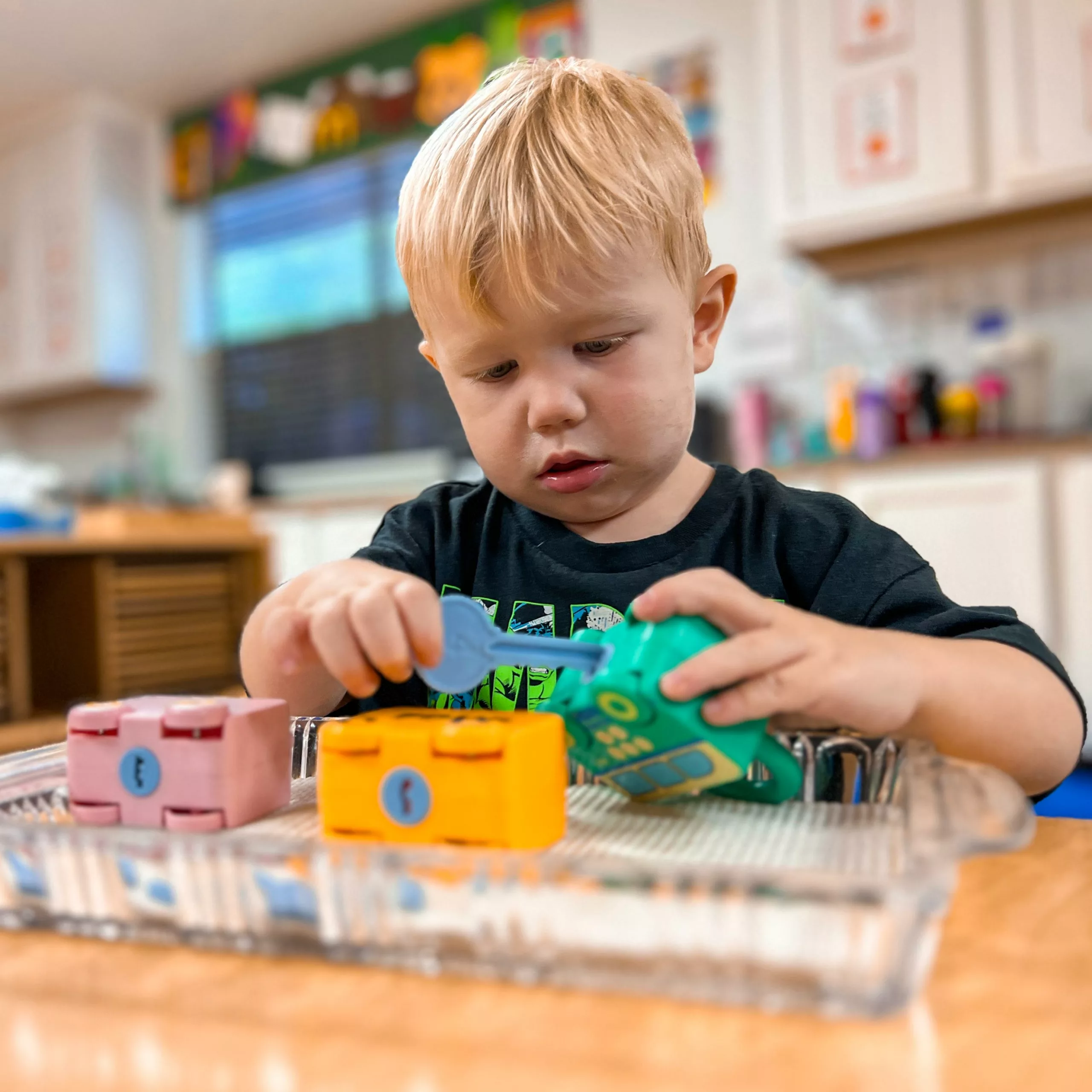As a thought leader in Montessori education, Lakewood Montessori is here to help you understand what Montessori is all about and why it's such a great option for preschoolers. Montessori is a child-centered educational approach focusing on self-directed learning, hands-on exploration, and social-emotional development.
In a Montessori classroom, children can choose their own activities and learn at their own pace. The teacher acts as a guide, providing support and encouragement as needed. The classroom environment is carefully prepared to promote independent learning, with a variety of materials and activities available to choose from.

Benefits of Montessori Education
There are many benefits to Montessori education, including:
- Self-reliance: Montessori children learn to be independent and self-sufficient. They learn to care for themselves, their belongings, and their environment.
- Problem-solving skills: Montessori children are encouraged to solve problems on their own. They learn to think critically and creatively to find solutions.
- Concentration: Montessori children learn to focus and concentrate on their work. They develop a deep love of learning.
- Social-emotional development: Montessori classrooms are nurturing and supportive environments. Children learn to respect themselves and others and to develop positive social skills.
- Academic achievement: Montessori children perform well academically. They are well-prepared for kindergarten and beyond.

How Montessori Differs from Traditional Education
Montessori education differs from traditional education in several ways. Here are a few key differences:
- Student-centered vs. teacher-centered: In a Montessori classroom, the child is the focus of learning. The teacher acts as a guide, providing support and encouragement as needed. In traditional classrooms, the teacher is the focus of learning. Children are expected to follow the teacher's instructions and complete assigned tasks.
- Individualized vs. standardized pacing: Children learn at their own pace in a Montessori classroom. The teacher provides individualized instruction and support as needed. In traditional classrooms, children are expected to learn at the same pace, regardless of their individual needs.
- Hands-on learning vs. traditional instruction: Montessori classrooms have hands-on materials and activities. Children learn through exploration and discovery. In traditional classrooms, children learn primarily through lectures and textbooks.
Is Montessori Right for Your Child?
Montessori is a great option for many children, but it's not for everyone. Here are a few things to consider when deciding if Montessori is right for your child:
- Your child's learning style: Montessori is a good fit for self-directed children who learn best by doing.
- Your child's personality: Montessori classrooms are calm and orderly. Montessori is a good fit for children who thrive in this type of environment.
- Your family's values: Montessori education emphasizes self-reliance, independence, and social-emotional development. If these values are important to you, then Montessori is a good option for your child.
How to Find a Good Montessori School
If you're interested in finding a good Montessori school for your child, here are a few tips:
- Look for accreditation. The American Montessori Society (AMS) and the Association Montessori Internationale (AMI) are two reputable accrediting organizations.
- Visit the school and observe the classroom. Pay attention to the environment, the materials, and the teacher-child interactions.
- Talk to other parents of Montessori students. Get their honest feedback on the school and their child's experience.
If you're interested in learning more about Montessori education for your preschooler, please schedule a tour of our school. We would love to show you around and answer any questions you have.
Visit our website to schedule a tour today!

